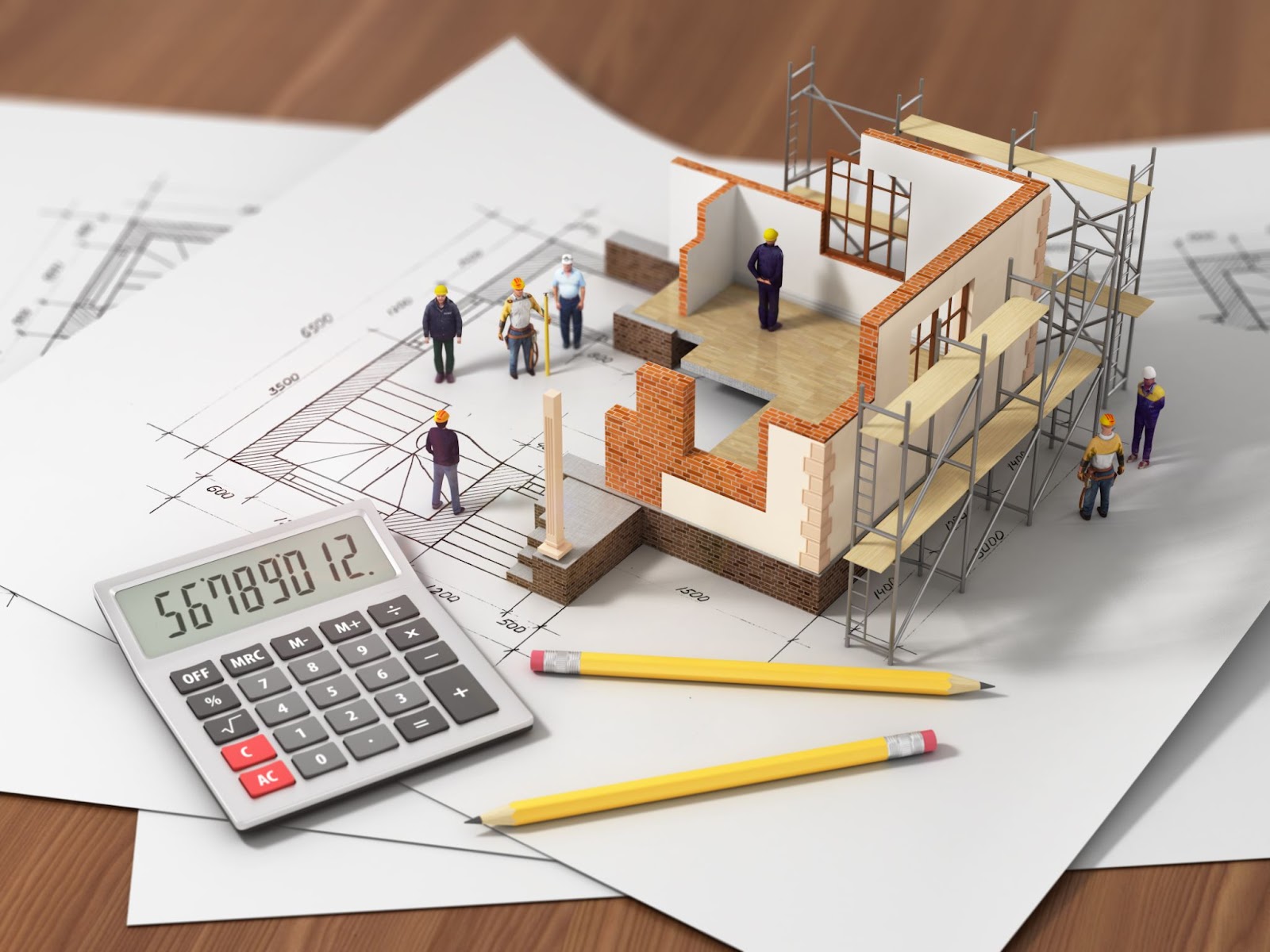
If you’re a real estate investor looking to finance a new build, or development, you’ve likely heard of a construction loan.
Before you jump in, it’s important to understand that these financial instruments play by different rules – namely, what’s required for a down payment and qualification requirements.
Let’s take a closer look.
What is a Construction Loan?
A construction loan is a short-term loan used to finance the cost of building a real estate project. These loans are usually offered for a term of one year, but can be extended, and must be paid off or converted into a permanent mortgage once the construction is complete.
How do Construction Loans Differ from Conventional Loans?
Construction loans are quite different from conventional mortgages. Here are a few major distinctions:
- Disbursement Method: Unlike conventional loans that are dispersed in a lump sum, construction loans are released in “draws” or installments, as each phase of the construction is completed.
- Interest Rates: Construction loans usually carry higher interest rates than conventional loans due to the higher risk involved.
- Loan Term: Construction loans have shorter terms, typically around 12 months, while conventional loans have longer repayment terms, generally 15 to 30 years.
What Factors go Into Qualifying for a Construction Loan?
Qualifying for a construction loan involves a different set of considerations compared to a conventional loan:
- Credit Score: Lenders typically require a high credit score for construction loans.
- Down Payment: A substantial down payment, often 20-30% of the total project cost, is required.
- Detailed Project Plan: Lenders require a detailed project plan, including timelines, budget, and construction blueprints.
- Builder’s Reputation: The reputation and financial stability of your builder can also influence your loan approval.
How Much is a Construction Loan Down Payment?
The down payment for a construction loan is typically higher than that for a conventional mortgage. You’ve got to think from the bank’s point of view. These bad boys are a little more risky. While down payments for conventional loans can be as low as 3-5%, construction loans often require a downpayment of 20-30% of the total project cost. This is to mitigate the lender’s risk, given the higher uncertainty associated with construction projects.
How Construction Loan Down Payments are Decided
Several factors influence the amount required for a construction loan down payment:
- Creditworthiness: Borrowers with a high credit score and strong financial history may be required to make a smaller down payment.
- Project Risk: The perceived risk of the construction project can influence the down payment. High-risk projects may require a larger down payment.
- Loan-to-Value Ratio: The loan-to-value (LTV) ratio, which is the loan amount compared to the future value of the completed project, also plays a role. A lower LTV often results in a lower down payment.
Alternatives to Construction Loans
Navigating the world of property development financing can be complex. While construction loans are a common choice, they’re not the only option. Here are some alternatives, including hard money loans, that might suit your situation better:
Owner-Builder Loans
If you have substantial construction experience and the time to manage a project, you might consider an owner-builder loan. These loans are designed for individuals acting as their own general contractor. By taking on the responsibility of coordinating and overseeing the construction project, you could potentially save on labor costs. However, lenders often see owner-builder loans as high-risk, so they may have stricter approval requirements.
Construction-to-Permanent Loans
Construction-to-permanent loans, also known as “one-time close” loans, are a two-in-one loan product. They start as a construction loan to cover the cost of building, and then convert into a conventional mortgage once construction is completed. The benefit of this loan is that it requires only one application and one closing, potentially saving you time and money. However, these loans often have stricter requirements, and you’ll need to have your project plans approved before you can qualify.
Hard Money Loans
Hard money loans are a type of short-term financing, typically used in real estate investment scenarios when traditional bank financing isn’t available or won’t work for the project. Here’s a closer look at how they function:
Quick Approval and Funding: Hard money lenders primarily focus on the collateral for the loan – the property. This means they can often approve loans more quickly than traditional lenders, sometimes in as little as 24 hours.
Flexible Terms: Hard money loans offer more flexible terms and conditions compared to traditional loans. They can be customized to fit individual project needs.
Interest Rates: Hard money loans typically have higher interest rates than conventional loans due to the increased risk that the lender is taking on.
Loan-to-Value Ratio: Hard money lenders typically offer loans based on the property’s after-repair value (ARV), which is the estimated value of the property after the completion of renovations or construction. This can be beneficial for investors planning significant property improvements.
While hard money loans offer several advantages, they also come with their own set of risks, including higher interest rates and potentially strict repayment schedules. As a real estate investor, it’s crucial to weigh the pros and cons of each financing option to determine the best fit for your project and financial situation.
Financing your next project
If you’re looking to finance a construction project, no one is more qualified to help you out than HouseMax. We’ve worked with thousands of real estate investors to find them flexible financing options. Our team are not just lenders, we’ve got experience as investors too! Get a rapid quote today.
By equipping yourself with this knowledge, you can better navigate the lending landscape, making informed decisions that align with your investment strategy and financial goals.


